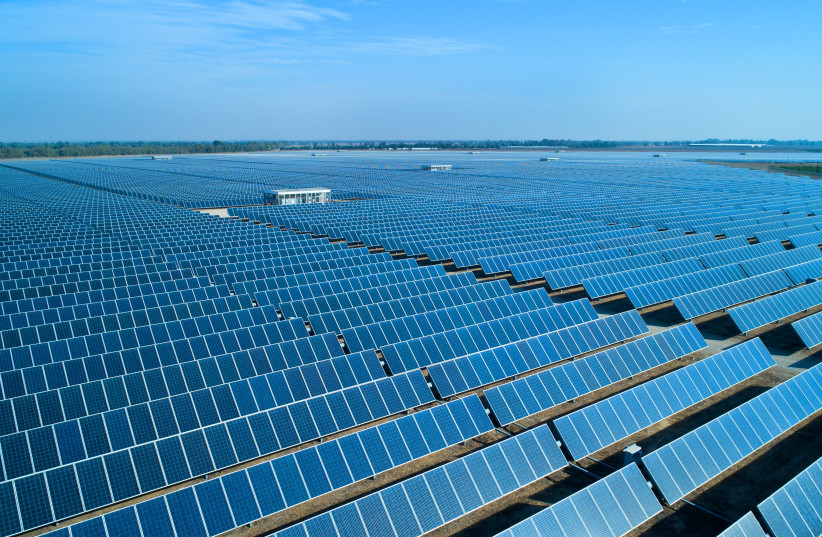One of the major takeaways from the recent Intergovernmental Panel on Climate Change (IPCC) report is that many of climate change’s effects can no longer be reversed, serving as a sobering wake-up call for policymakers and power players that the time to act was yesterday. As climate change amps up the heat, the global demand for air conditioning and refrigeration will continue to rise, especially as developing nations become developed and standards of living improve. The cruel irony, however, is that more cooling leads to more warming, both from the refrigerant chemicals the cooling machinery uses and the electricity it consumes.
Thus far, the solutions to address this paradox have simply missed the mark. Plans to revamp entire energy grids to keep up with rising demand are too slow to keep up with climate change’s merciless march forward, and the lithium-ion batteries used to store energy for cooling today are toxic for the environment in and of themselves. Israel-based green energy company Nostromo Energy says we can’t afford to wait any longer to address the rising demand for cooling, offering a sustainable solution that can be implemented in cities across the globe today.
Cooling can account for almost half of global peak electricity demand during the hot season, which is getting hotter and longer. In warmer climates, the need for year-round cooling also exacerbates the problem, particularly in places with highly-developed commercial sectors that house large business offices, shopping malls, hotels, factories and airports. Nostromo leverages its IceBrick™, a clean and safe water-based battery, to effectively turn these large commercial buildings into their own virtual power plants through its thermal energy storage system.
During the day, the most effective way to power cities using renewables is with solar energy. The problem is storing enough of it for use after sundown, which would be a good way to ease the pressure on the grid. Regions experience solar peak generation every day, followed by a significant drop within the span of three hours. The means required to manage this ramp-up bear a heavy toll on the power grid.
We’ve witnessed the rapid growth and deployment of lithium-ion-based energy storage systems to address this peak demand over the past few years. Tesla’s beloved electric cars, for example, run on lithium. Their proliferation, however, has sparked growing concern about the serious environmental consequences and safety issues these batteries pose.
Among other problems, the lithium-mining process harms the soil and causes air contamination. In fact, it has become a point of hypocrisy pointed out by conservatives still clinging to non-renewable resources. Of course, any opposition to the effort to cut carbon emissions and save humanity is to be ignored. The concerns about lithium-ion, however, are very real. Now more than ever, there’s a need to embrace and invest in safe, environmentally friendly and efficient storage mechanisms that support the integration of renewable energy, and Nostromo’s water-based solution does offer an immediate solution.
Nostromo’s technology harnesses encapsulated ice cells that allow modular installation in commercial buildings and factories. The modular structure of the cells is economical in space and volume, allowing for swift installation on roofs, in basements, or even along walls. The system charges cold energy during hours when electricity demand is low or there is a surplus of renewable energy, and then discharges the energy during peak consumption hours, relieving the grid from the high cooling electricity demands. The system alleviates a significant portion of the stress placed on the power grid.
The company’s potential to completely reshape the commercial sector’s management of cooling is already being recognized by serious names across several industries. In April, Nostromo announced a 20-year agreement with the prestigious Hilton Beverly Hills hotel to install a 1.5 MWh system (serving both the Hilton and the adjacent Waldorf Astoria). Nostromo also signed an agreement with Sandstone Properties for the construction of a 900 kWh system in a Los Angeles office building, as well as a memorandum of understanding with Westfield, one of the biggest owners and operators of large retail centers in the US, to install systems at its sites.
Though bleak, the IPCC report has given innovators and administrators a much-needed shakedown. With our planet getting warmer, our cooling requirements are only going to ramp up as we continue to build, develop, and commercialize. We’re getting ever nearer to the point of no return, and unless we begin acting soon, later generations will be left to remedy something long beyond repair. We’ve now reached a junction at which legitimate solutions to our energy consumption need to be identified and implemented, and the team at Nostromo is leading the charge with sustainable cold energy storage solutions that turn our most demanding energy consumers into assets.

